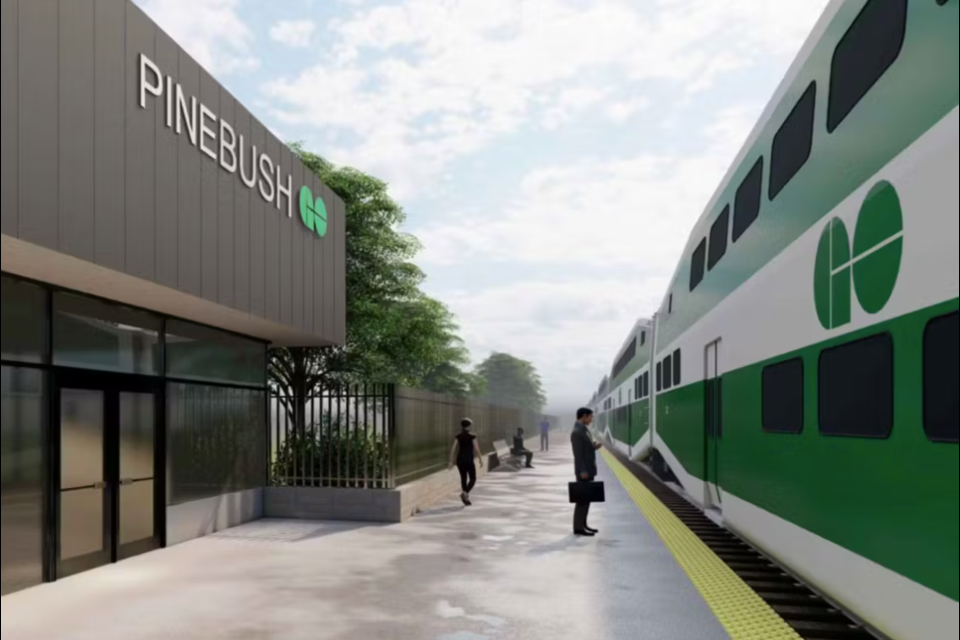Should a commuter rail line be established connecting Cambridge and Guelph?
Officials with the Region of Waterloo want to know your thoughts as they prepare to release a final report exploring the concept of bringing a GO passenger rail to Cambridge, now estimated to cost between $450 million and $550 million.
The Region of Waterloo's business case on the idea will explore the possibility of providing 17-minute GO service from Cambridge to Guelph with one or two trains every 60 minutes using a CN freight line through Hespeler.
Annual operating and maintenance cost estimates for adding a GO train to Guelph range from $100 million to $150 million in 2023 dollars, but those costs are expected to be recovered through annual fare revenue.
These are a few of the details now available on the region's EngageWR site, where a survey will soon be live to give residents a chance to offer their ideas and opinions on how the service would benefit the city and if it should be implemented.
An initial business case to the Crown agency responsible for overseeing the provincial transit service would develop conceptual designs for the integration of the service at a potential future ION Station South of Hespeler Road at Eagle Street and Pinebush Road.
The service would end at Guelph Central Station where commuters would be able to connect to trains on the Kitchener line headed to Union Station in Toronto.
The service would run on the CN-owned-and-operated Fergus Subdivision, which is used currently for freight transportation.
The Fergus Subdivision line runs under Highway 401 and Hespeler Road near the wastewater treatment plant where it enters town parallel to Queen Street before crossing the Speed River and heading east next to the Mill Pond trail.
The work to develop the region's business case expands on a 2021 feasibility study that touted Cambridge as the "only urban municipality of over 100,000 residents in Ontario that is presently not served by passenger rail service."
The region says engagement between it, Metrolinx, the City of Guelph, and CN Rail, is ongoing to determine a strategy for implementation and operation following the completion of the business case, which is expected to be tabled for council consideration later this year.
The work is promising for regional councillor Doug Craig who has been trying to get Metrolinx to consider a Cambridge line for GO trains since 2009, when he was the city's mayor.
Back then he said he worked with CP rail to consider a Milton-to-Cambridge line with a terminus in the area of Franklin Boulevard and Savage Drive.
Projected costs at the time were about $70 million, he said.
But as the consultant behind the 2021 feasibility study of the Fergus Subdivision Line explained, there were "significant implementation barriers related to track sharing with freight service along the Milton Line."
The region now says "the investment required to establish a Milton connection would be more costly and offer a longer overall travel time to Union Station."
Those barriers forced the region to switch focus to the Guelph connection.
But Craig denies that was really the issue.
"Freight was never an obstacle," he says, in response to the idea that CP turned down the idea because its tracks were already heavily used.
"The reality was regional officials wanted to promote KW over the Cambridge line," Craig said.
Asked whether the region's efforts to bring Stage 2 LRT to Cambridge should continue to be the higher priority in terms of requests for federal and provincial funding, Craig doesn't hesitate to say he'd much rather see GO service roll into Cambridge than he would the ION.
In terms of financial viability, "GO is obviously the priority here."
"Who the hell is going to give Cambridge $4.5 billion for light rail transit?"



